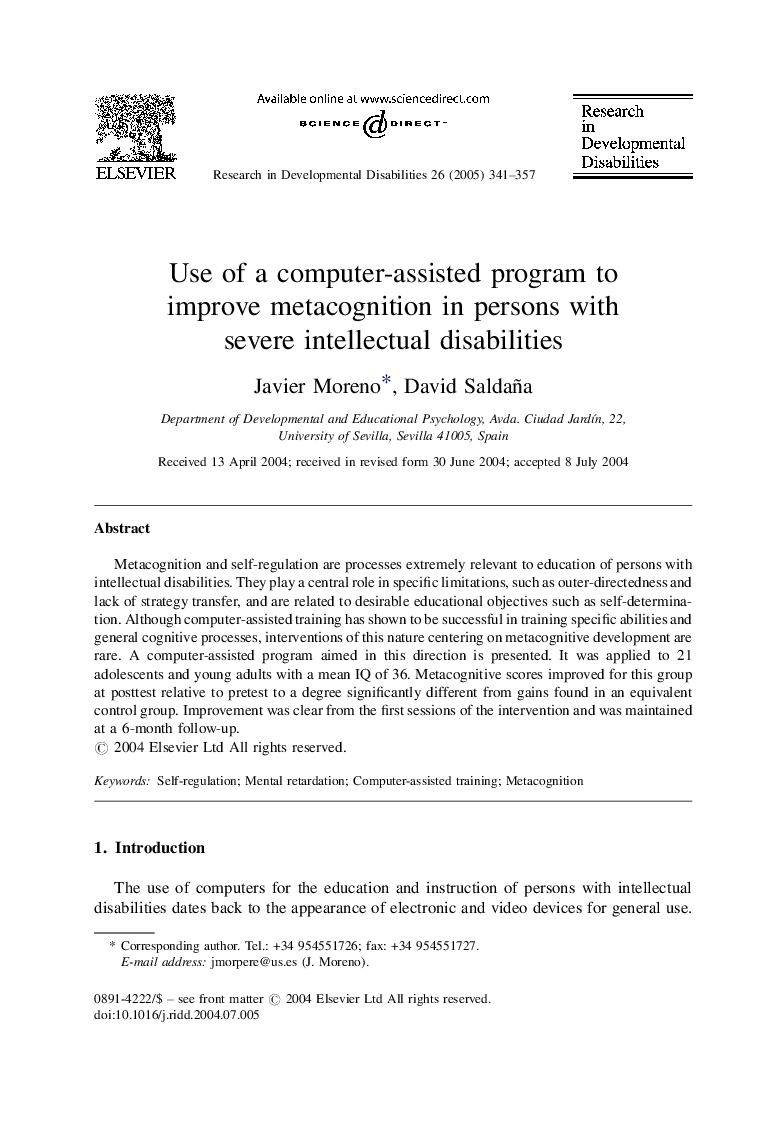| Article ID | Journal | Published Year | Pages | File Type |
|---|---|---|---|---|
| 10318101 | Research in Developmental Disabilities | 2005 | 17 Pages |
Abstract
Metacognition and self-regulation are processes extremely relevant to education of persons with intellectual disabilities. They play a central role in specific limitations, such as outer-directedness and lack of strategy transfer, and are related to desirable educational objectives such as self-determination. Although computer-assisted training has shown to be successful in training specific abilities and general cognitive processes, interventions of this nature centering on metacognitive development are rare. A computer-assisted program aimed in this direction is presented. It was applied to 21 adolescents and young adults with a mean IQ of 36. Metacognitive scores improved for this group at posttest relative to pretest to a degree significantly different from gains found in an equivalent control group. Improvement was clear from the first sessions of the intervention and was maintained at a 6-month follow-up.
Related Topics
Life Sciences
Neuroscience
Behavioral Neuroscience
Authors
Javier Moreno, David Saldaña,
